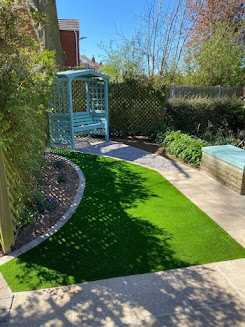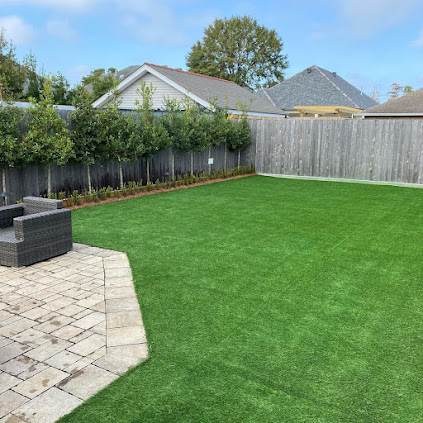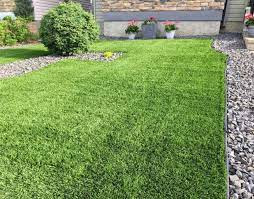Pros and Cons of Artificial Grass
Pros:
Low Maintenance: One of the primary advantages of
artificial grass is its minimal maintenance requirements. No mowing, watering,
or fertilizing is needed.
Year-Round Greenery: Artificial grass stays green and vibrant regardless
of the weather, providing an attractive lawn year-round.
Water Conservation: It conserves water, making it an
eco-friendly choice in regions with water shortages or strict watering
regulations.
Durability: Artificial grass can withstand heavy
foot traffic, making it ideal for high-use areas and sports fields.
Allergen-Free: It doesn't produce pollen or harbor
allergens like natural grass, making it a better option for allergy sufferers.
Pest-Free: Artificial grass doesn't attract
pests like insects or rodents, reducing the need for pesticides.
Cons:
Initial Cost: Installation can be expensive,
including the cost of materials, labor, and preparing the ground.
Heat Retention: Artificial grass can become hot in
direct sunlight, making it uncomfortable for barefoot walking during the
summer.
Artificial Appearance: Some people prefer the look and feel
of natural grass, finding artificial grass less appealing.
Environmental Impact: While it saves water, the production
and disposal of artificial grass materials can have environmental consequences.
Limited Lifespan: Over time, artificial grass may wear
out, lose its luster, or develop wrinkles.
Installation
Challenges: Proper
installation is critical; otherwise, the surface may become uneven or require
frequent maintenance.
In summary, artificial grass offers convenience and
environmental benefits but comes with an initial cost and may not appeal to
those who prefer the natural look and feel of real grass. Consider your
specific needs and preferences when deciding if artificial grass is right for
you.




Comments
Post a Comment